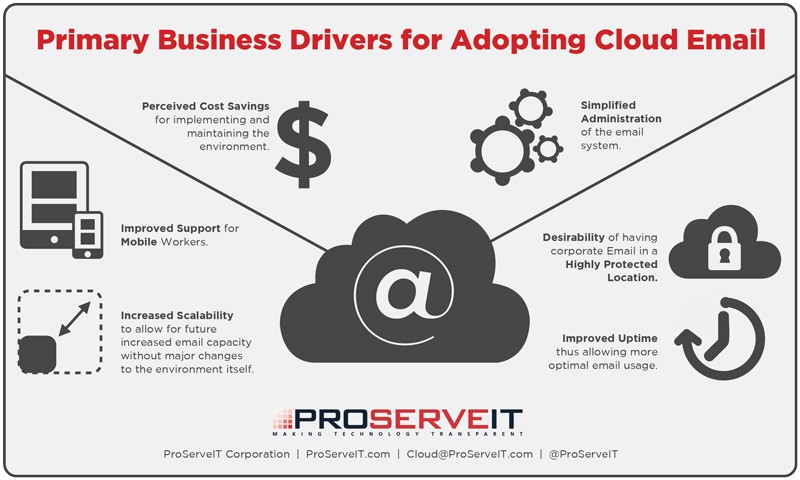The Shift to Cloud-based Solutions for Seamless Communication
Organizations of all sizes are increasingly adopting cloud-based email and communication services as part of their digital transformation strategies. These services offer numerous benefits, including cost-effectiveness, scalability, and enhanced collaboration. By moving communication infrastructure to the cloud, businesses can reduce capital expenditures on hardware, software, and on-site maintenance. Additionally, cloud-based solutions enable seamless collaboration by providing real-time access to emails, documents, and other communication tools, regardless of the user’s location.

Understanding Cloud-based Email and Communication Services
Cloud-based email and communication services refer to web-hosted solutions that allow users to access email, calendars, contacts, and other collaboration tools through the internet. These services offer several key features and functionalities that differentiate them from traditional on-premises solutions. For instance, they provide users with the flexibility to access their data from any location and device with an internet connection. Additionally, cloud-based services offer automatic software updates, reducing the need for manual maintenance and ensuring that users always have access to the latest features and security updates.
Data security and reliability are critical considerations when choosing a cloud-based email and communication service. Reputable service providers invest heavily in security measures such as encryption, multi-factor authentication, and access controls to protect user data. They also provide service level agreements (SLAs) that guarantee uptime and availability, ensuring that users can access their data whenever they need it. When evaluating different cloud-based email and communication services, it is essential to consider the provider’s track record in maintaining data security and reliability.

Top Cloud-based Email and Communication Services to Consider
When it comes to cloud-based email and communication services, several popular options are available for businesses of all sizes. Here are three top choices to consider:
- Google Workspace (formerly G Suite): Google Workspace is a comprehensive communication platform that includes Gmail, Google Drive, Google Meet, and Google Docs. These tools enable users to collaborate on documents in real-time, schedule meetings, and communicate with colleagues through email or video conferencing. Google Workspace offers several pricing plans, starting at $6 per user per month, making it an affordable option for small businesses and large enterprises alike.
- Microsoft 365: Microsoft 365 is a well-known platform that offers email and communication tools such as Outlook, OneDrive, Microsoft Teams, and SharePoint. These tools enable users to collaborate on documents, schedule meetings, and communicate through email, instant messaging, or video conferencing. Microsoft 365 offers several subscription plans, starting at $5 per user per month, making it a flexible option for businesses of all sizes.
- Zoho Mail: Zoho Mail is a cost-effective solution for small businesses that offers email, calendar, and contact management tools. Zoho Mail is known for its affordability and simplicity, with pricing plans starting at $1 per user per month. It also offers integration with other Zoho products, making it an attractive option for businesses already using Zoho’s suite of tools.
Google Workspace: A Comprehensive Communication Platform
Google Workspace, formerly known as G Suite, is a cloud-based communication platform that offers a range of tools for businesses to communicate and collaborate effectively. The platform includes Gmail, Google Drive, Google Meet, and Google Docs, among other tools, making it a comprehensive solution for businesses of all sizes.
- Gmail: Gmail is a popular email service that offers users a range of features, including spam protection, calendar integration, and custom email addresses. Gmail also offers a range of third-party integrations, making it a flexible option for businesses.
- Google Drive: Google Drive is a cloud storage service that allows users to store, share, and access files from anywhere. Google Drive offers real-time collaboration, making it an ideal tool for teams working on documents together.
- Google Meet: Google Meet is a video conferencing tool that allows users to schedule and join meetings from anywhere. Google Meet offers features such as screen sharing, recording, and live streaming, making it an ideal tool for remote teams.
- Google Docs: Google Docs is a cloud-based word processing tool that allows users to create and edit documents in real-time. Google Docs offers features such as commenting, version history, and third-party integrations, making it an ideal tool for collaborative teams.
Google Workspace offers several pricing plans, starting at $6 per user per month. The platform is known for its affordability, scalability, and ease of use, making it an attractive option for businesses looking for a comprehensive communication platform.
Microsoft 365: A Familiar and Feature-rich Option
Microsoft 365, formerly known as Office 365, is a cloud-based email and communication service that offers a range of tools for businesses to communicate and collaborate effectively. The platform includes Outlook, OneDrive, Microsoft Teams, and SharePoint, among other tools, making it a comprehensive solution for businesses of all sizes.
- Outlook: Outlook is a popular email service that offers users a range of features, including spam protection, calendar integration, and custom email addresses. Outlook also offers a range of third-party integrations, making it a flexible option for businesses.
- OneDrive: OneDrive is a cloud storage service that allows users to store, share, and access files from anywhere. OneDrive offers real-time collaboration, making it an ideal tool for teams working on documents together.
- Microsoft Teams: Microsoft Teams is a video conferencing tool that allows users to schedule and join meetings from anywhere. Microsoft Teams offers features such as screen sharing, recording, and live streaming, making it an ideal tool for remote teams.
- SharePoint: SharePoint is a content management system that allows users to create and manage websites, documents, and other digital assets. SharePoint offers features such as version control, workflow automation, and custom branding, making it an ideal tool for businesses looking to streamline their content management processes.
Microsoft 365 offers several pricing plans, starting at $5 per user per month. The platform is known for its affordability, scalability, and ease of use, making it an attractive option for businesses looking for a comprehensive communication platform. Additionally, Microsoft 365 is a well-known platform, which can make it easier for businesses to onboard new users and train existing ones.

Zoho Mail: A Cost-effective Solution for Small Businesses
Zoho Mail is a cloud-based email and communication service that offers a range of features tailored to small businesses. The platform is known for its affordability, simplicity, and ease of use, making it an attractive option for businesses looking for a cost-effective communication solution.
- Email Hosting: Zoho Mail offers email hosting with custom domain names, making it an ideal solution for businesses looking to establish a professional online presence.
- Calendar Integration: Zoho Mail offers calendar integration, allowing users to schedule and manage appointments, meetings, and events from within the platform.
- Collaboration Tools: Zoho Mail offers a range of collaboration tools, including document editing, file sharing, and team chat, making it an ideal solution for businesses looking to streamline their communication processes.
- Security: Zoho Mail offers robust security features, including spam protection, virus protection, and two-factor authentication, making it an ideal solution for businesses looking to protect their data and communications.
Zoho Mail offers several pricing plans, starting at $1 per user per month. The platform is known for its affordability, scalability, and ease of use, making it an attractive option for small businesses looking for a comprehensive communication solution. Additionally, Zoho Mail offers a range of integrations with other Zoho products, making it an ideal solution for businesses already using Zoho’s other business tools.

How to Choose the Right Cloud-based Email and Communication Service
Choosing the right cloud-based email and communication service is an important decision for any organization. With so many options available, it can be challenging to determine which service is the best fit. Here are some factors to consider when selecting a cloud-based email and communication service:
- Budget: Determine your budget for a cloud-based email and communication service. Consider the cost of the service, as well as any additional fees for features or integrations.
- User Needs: Consider the needs of your users. Determine what features and functionalities are most important to your users and select a service that meets those needs.
- Security: Consider the security features of the service. Look for services that offer robust security features, such as spam protection, virus protection, and two-factor authentication.
- Integration Capabilities: Consider the integration capabilities of the service. Look for services that offer integrations with other tools and platforms that your organization uses.
- Reliability: Consider the reliability of the service. Look for services that offer uptime guarantees and have a track record of reliability.
By considering these factors, you can select a cloud-based email and communication service that meets the needs of your organization and provides a reliable, secure, and cost-effective communication solution. It’s also important to consider the scalability of the service, as your organization’s needs may change over time. Look for services that offer flexible pricing plans and the ability to add or remove users as needed.

Maximizing the Benefits of Cloud-based Email and Communication Services
Cloud-based email and communication services offer a range of benefits for organizations, including cost-effectiveness, scalability, and enhanced collaboration. However, to truly maximize the benefits of these services, it’s important to follow best practices and implement training programs for users.
- Training: Provide training for users on how to use the cloud-based email and communication service. This can help users understand the features and functionalities of the service and how to use them effectively. Training can be provided through online tutorials, in-person training sessions, or a combination of both.
- Best Practices: Establish best practices for using the cloud-based email and communication service. This can include guidelines for email etiquette, data security, and collaboration. Best practices can help ensure that users are using the service effectively and safely.
- Continuous Improvement: Continuously evaluate and improve the use of the cloud-based email and communication service. This can include monitoring usage, gathering feedback from users, and implementing new features or integrations as needed.
By following these best practices, organizations can ensure that they are getting the most out of their cloud-based email and communication service. It’s also important to regularly review and update the service to ensure that it continues to meet the needs of the organization and its users. By staying up-to-date with the latest features and integrations, organizations can continue to enhance their communication and collaboration capabilities.

